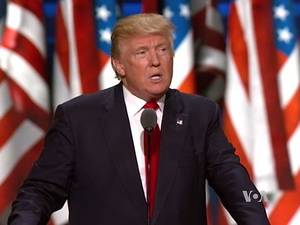Test your vocabulary with our 10-question quiz!
TAKE THE QUIZTrending: ‘tariff’
Lookups spiked 1,200% on December 4th, 2018
Tariff defied the odds and managed to ascend to the top of our lookups on December 4th, 2018, after President Trump described himself as a "Tariff Man."
....I am a Tariff Man. When people or countries come in to raid the great wealth of our Nation, I want them to pay for the privilege of doing so. It will always be the best way to max out our economic power. We are right now taking in $billions in Tariffs. MAKE AMERICA RICH AGAIN
— Donald J. Trump (@realDonaldTrump) December 4, 2018
We provide a range of meanings for tariff, including "a schedule of duties imposed by a government on imported or in some countries exported goods," "a schedule of rates or charges of a business or a public utility," and "price, charge."
The word has been in use in English since the late 16th century, and came into our language from the Italian tariffa. It may be traced back prior to that to the Arabic taʽrīf, meaning "notification."
Although the apparent modification of man with tariff struck some as odd, and tariff is only defined as a verb or a noun, there is ample precedent for this exact use (most of which occurs in 19th century political discourse). Tariff may, as many other nouns, function in an attributive manner, wherein a noun serves to modify the noun that comes after it (as in college student, school bus, or head case).
Hence, in that sense, and to that extent, I am "a tariff man."
— Speech of Hon. Levi Woodbury, of New Hampshire, on the Tariff Bill, Delivered in the Senate of the United States, 20 Jul. 1842Mr. Frye, who was near Mr. Conger, was heard above the rest, and said: "There is not a word of truth in the statement of the gentleman from Michigan. I am a tariff man and in favor of the bill." [Applause]
— The Washington Post, 16 Jun. 1880"I am a tariff man. I am a protectionist, but tariff and a gold standard cannot go together."
— (quote from Sen. Henry M Teller), The Atlanta Constitution, 3 Sept. 1896
Trend Watch is a data-driven report on words people are looking up at much higher search rates than normal. While most trends can be traced back to the news or popular culture, our focus is on the lookup data rather than the events themselves.








